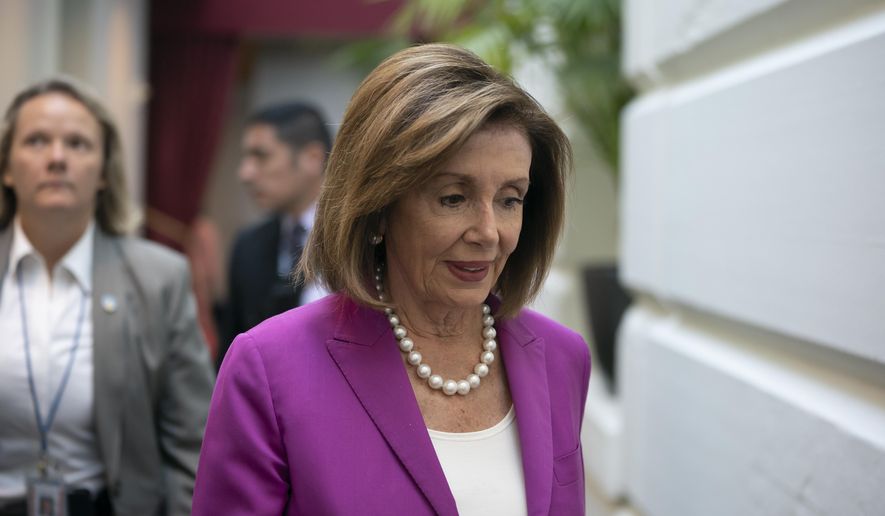The House is currently reviewing comments made by House Speaker Nancy Pelosi to determine if they’ve violated official rules against criticizing the president.
The top ranking House Democrat called the president’s comments about four freshman congresswomen — Reps. Alexandria Ocasio-Cortez, Ilhan Omar, Ayanna Pressley and Rashida Tlaib — “divisive and dangerous” to the country.
“Every single member of this institution, Democratic and Republican, should join us in condemning the president’s racist tweets,” she said. “To do anything less would be a shocking rejection of our values and a shameful abdication of our oath of office to protect the American people.”
Rep. Doug Collins, ranking member of the Judiciary Committee, called for Mrs. Pelosi’s comments to be taken down, calling them “unparliamentary.”
Mrs. Pelosi argued she had cleared her remarks with the parliamentarian before speaking.
The rules, which trace back to Thomas Jefferson’s writings, allow members to criticize the government or the president on the House floor in an official capacity, but they are prohibited from using language that is “personally offensive” to the president. For example, lawmakers cannot call the president a liar or hypocrite.
On the matter of racial rhetoric, Jefferson’s Manual explicitly states that any any reference to “racial or other discrimination on the Part of the President” are not allowed.
“As such, remarks may not refer to the President as a racist, having made ’racial slurs’ or ’racial epithets’” the manual reads.
According to the Congressional Research Service, if the House votes that Mrs. Pelosi’s comments violated the rules, she could be barred from speaking on the floor for the rest of the day.
Several other warnings about this rule, which also extends to other members of Congress, had to be issued throughout the debate.
The resolution itself is titled “Condemning President Trump’s racist comments directed at Members of Congress,” which could pose an issue.
However, earlier on Tuesday, Majority Leader Steny Hoyer argued that the resolution itself wouldn’t cross any lines because the criticism was aimed at tweets not the president.
“We’re condemning the language that was used, not the president himself,” he said.
Debate on the condemnation resolution is currently paused, delaying floor action.
Rep. Emanuel Cleaver, who was serving as chair, stepped down out of frustration.
“Unfairness is not enough because we want to just fight,” he said before dropping the gavel.
• Gabriella Muñoz can be reached at gmunoz@washingtontimes.com.




Please read our comment policy before commenting.